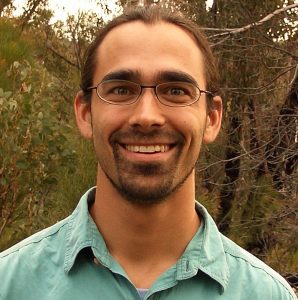IRES Seminar Series
Time: 12:30pm to 1:30pm (every Thursday)
Via Zoom only.
View video.
*********************************************************************************
Integrating agroforesters’ & ecologists’ knowledge to restore forests through agroecological production
Abstract:
Successional agroforestry offers great potential to accelerate and scale out ecosystem restoration and produce healthy food at the same time on the same land. Yet, simultaneous ecological and socioeconomic success requires detailed knowledge of management traits of diverse plants and experience with efficient allocation of labor and inputs in space and time. Traditional knowledge, contemporary practitioners and socioecological science complement one another to test and adapt know-how. Hands-on collective work sessions and interactive online database sharing help to optimize tradeoffs between cultivated biodiversity, labor-efficiency and operational viability. Spatial and temporal arrangements of polycultures seek to raise crop functional diversity sufficiently to occupy ecological niches compatible with the disturbance regime of available agricultural tools and machinery. The resulting efficient use of space, light, nutrients, water and labor reduces external inputs and facilitates permanent conservation by sustainable use of native biodiversity.
Ilyas Siddique
Associate Professor of Agroecosystems, Federal University of Santa Catarina (Brazil)
Bio:
Ilyas Siddique is an Associate Professor of Agroecosystems at the Federal University of Santa Catarina (Brazil). His research focuses on functional diversity in successional agroforestry, tropical forest restoration through sustainable use, mechanization of syntropic agriculture, ecosystem multifunctionality and food sovereignty. His outreach seeks to foster the dialog of knowledge among scientists, practitioners and traditional ecological knowledge to catalyze the adoption and diversification of agroforestry. He coordinates the Network of Agroecological Agroforestry of Southern Brazil (Rede SAFAS), which is currently elaborating a citizen science open database of crop management traits.
